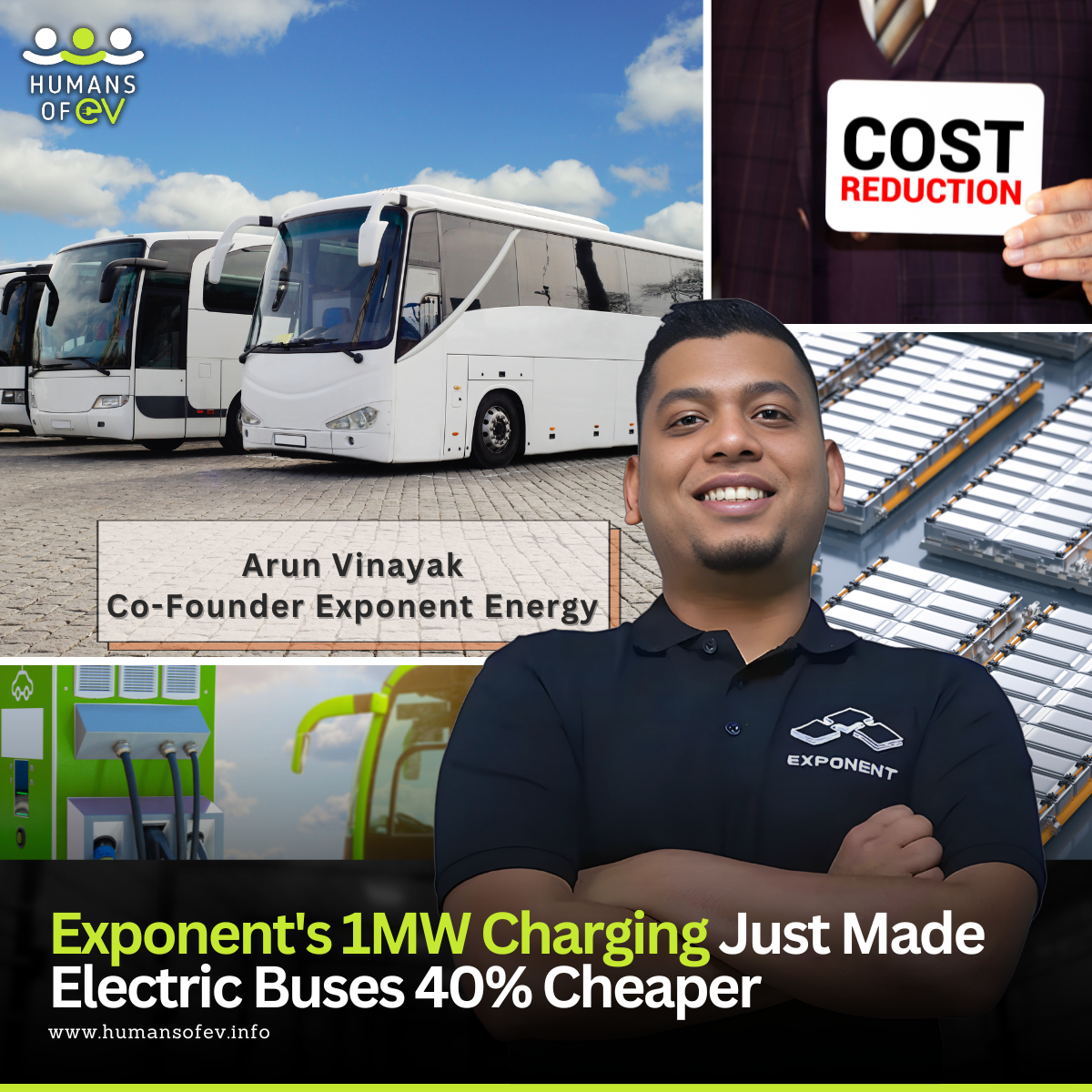
March 20th, 2025
Exponent Energy has unveiled what could be a transformative development for India’s public transport electrification – the country’s first 1MW rapid charging technology for electric buses. The innovation promises to slash the capital cost of electric buses by 30-40% by enabling the use of significantly smaller battery packs.
Set to launch within the next six months, the system allows for a complete charge in just 15 minutes, radically reducing the downtime that has plagued electric bus operations. This breakthrough means bus operators can now opt for smaller batteries that deliver a 250km range, rather than the larger 400km range batteries previously considered necessary.
“The economics of this are compelling,” said Arun Vinayak, CEO and co-founder of Exponent Energy. “We built this technology using standard off-the-shelf lithium-ion cells, making it accessible and scalable across India’s transport network.”
Smaller Batteries, Bigger Impact
The significance of this development extends beyond the charging technology itself. Electric buses typically carry massive battery packs that contribute substantially to both the vehicle’s weight and cost. By enabling rapid charging during regular route stops, Exponent’s technology eliminates the need for oversized batteries.
Mohandas Pai, chairman of Aarin Capital Partners, highlighted the financial implications: “This technology reduces both the weight and cost of the bus. The ability to fast charge in 15 minutes during stops lowers the need for larger batteries, cutting capital costs and improving operating efficiency.”
Industry experts note that batteries often represent up to 40% of an electric bus’s purchase price. Reducing battery size while maintaining operational range could therefore make electric buses financially competitive with diesel alternatives without relying on subsidies.
Real-World Deployment Already Underway
Unlike many technology announcements that remain theoretical, Exponent’s system is already operational. In August 2024, the company partnered with bus manufacturer Veera Vahana to introduce the rapid-charging intercity bus Veera Mahasamrat EV.
The 1MW charging system will initially be exclusive to the Veera Vahana fleet, but Exponent plans to expand access as it forms partnerships with other bus manufacturers. The company reports that over 1,700 electric vehicles have already used its charging infrastructure, completing more than 350,000 charging sessions.
Exponent currently operates in five Indian cities: Delhi NCR, Chennai, Ahmedabad, Kolkata, and Hyderabad. This geographical spread positions the company to support intercity bus routes connecting major urban centers.
Potential for Lower Fares
The reduced capital costs could ultimately benefit passengers through lower fares. As Pai explained, “Electric power is already cheaper than diesel. Now with reduced capital cost, electric buses will be more cost-effective than diesel ones. This means operators won’t need to recover high upfront expenses through higher fares.”
This development comes at an opportune time, as the Indian government recently launched the ₹10,900 crore PM Electric Drive Revolution in Innovative Vehicle Enhancement (PM E-DRIVE) and the ₹3,435.33 crore PM-eBus Sewa-Payment Security Mechanism schemes to accelerate electric bus adoption.
Founded in 2020 by former Ather executives Arun Vinayak and Sanjay Balyal, Exponent Energy has raised $44.6 million through various funding rounds. The company is also working toward developing domestic cell manufacturing capabilities to enhance India’s self-reliance in EV technology.
While Chinese automaker BYD recently unveiled a similar 1MW charging system for cars, Vinayak emphasized that Exponent’s technology is already operational in India, placing the domestic startup at the forefront of global charging innovation.



